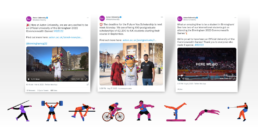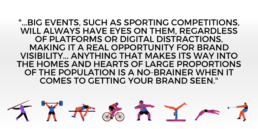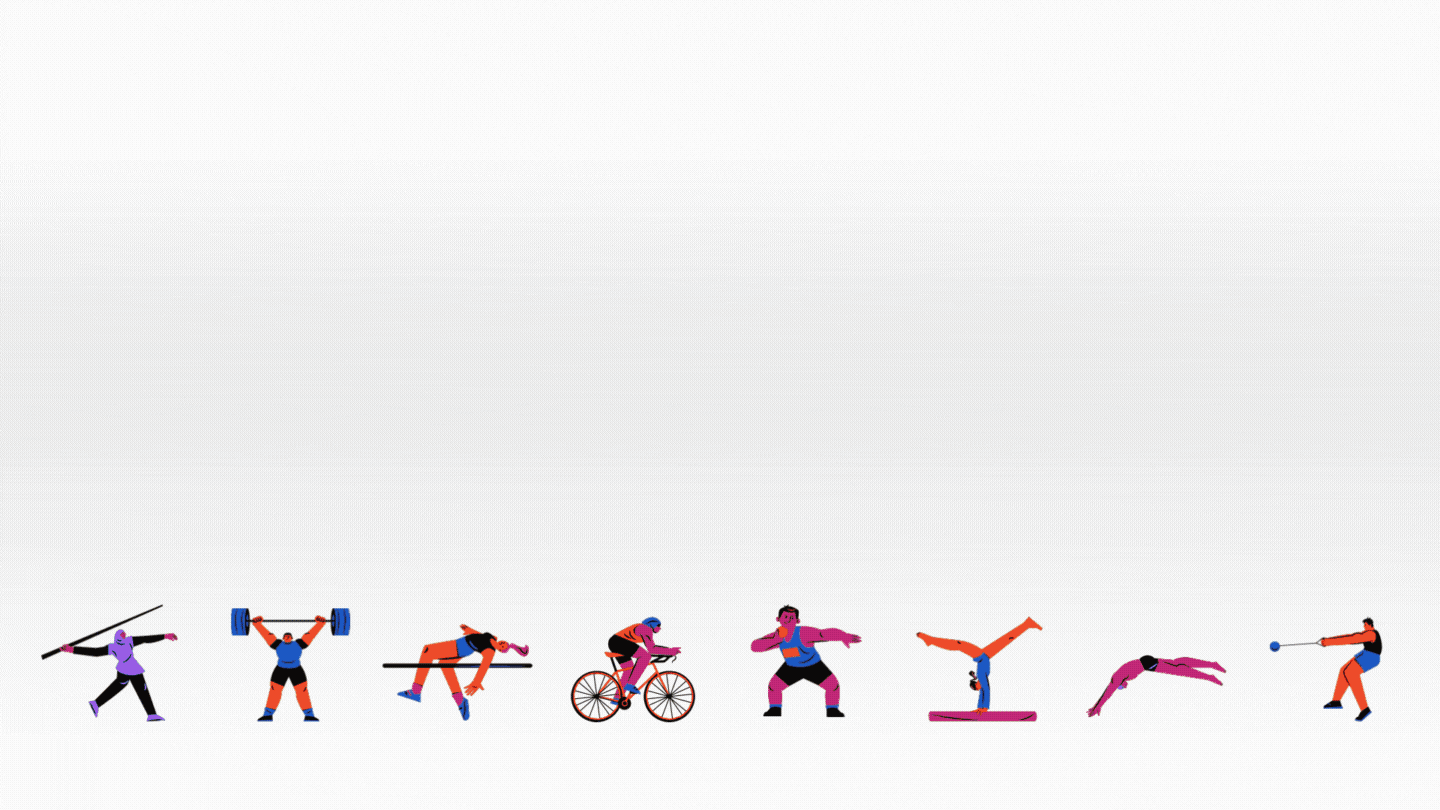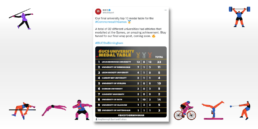If you watched the 2022 commonwealth games, even if just for 15 minutes, you won’t have failed to notice the prominent marketing of a certain Midland-based university. World 100 member, The University of Birmingham, was front and centre of nearly every shot of the sporting action.
Obviously, we accept that this level of visibility doesn’t come without a hefty price tag, but we couldn’t let the moment go by without acknowledging it. And whilst we don’t yet know the ROI or real-world impact it has had for the university; it would be amiss not to explore it as a case study for higher education branding and marketing.
In fact, if you were looking for it, the entire commonwealth games had the theme of higher education woven throughout. For example, in both 2018 and 2022, the commonwealth games awarded an ‘official university of the games’ to an institution in the host city. This year’s accolade went to Aston University. Whilst University of Birmingham arguably got the glory of housing the athletes, and the visual marketing opportunities, Aston University provided healthcare facilities for athletes and team officials throughout the whole games, focussing on ophthalmic care.

At The World 100, we have heard a number of presentations from our members detailing how their universities have tied their marketing activity in with global events taking place in their city; I’m thinking specifically of the brilliant work conducted by the University of Glasgow during the COP26 Global Climate Summit and the work of University of Exeter during the G7 Summit in 2021. These campaign stories are always fascinating and demonstrative of how to emphasise the links between an institution and the community it sits in.
So what lessons can we learn from the University of Birmingham’s campaign and the games as a whole that universities can take forward:
Brand visibility: Getting in front of your audiences
As we mentioned earlier, the visibility of the University of Birmingham’s logo during the games was quite something to behold. If you put on the table tennis, there it was in the background. Switch the squash on and it would shine through the glass walls. Put the weightlifting on and there it was directly behind the competitor. Open the app….oh look, there it is again. Now, of course, we know that positioning sponsorship logos in front of the camera is nothing innovative or ground-breaking and that all space is advertising space if you pay the right fee, but for a higher education institution, it is particularly powerful. Countless potential students would have watched or attended the games, and at that time, education would have been the last thing on their minds, but it would be very unlikely if the sheer visibility of the university’s branding hadn’t planted seeds in the back of their mind for when the moment does arise.
Often this type of sponsorship is reserved for the big mass market conglomerates, where it has repeatedly been a question of financial gain over logical association, sometimes leading to mixed messages for consumers; for example, previous big-name sporting events have been sponsored by fast food chains or sugary unhealthy snacks, and can often lead to backlash or, in the case of that press conference with Cristiano Ronaldo, a complete backfire with the brand being replaced by a nice fresh bottle of water. So, it was therefore refreshing to see higher education front and centre of the sponsorship boards and giving younger generations a potentially healthier message.
It was also refreshing to see more traditional advertising. In today’s society, especially where marketing is concerned, there is so much focus on ‘going digital’. But to see a heavy print and TV advertising campaign was refreshing. Digital has taken over advertising, with theories being that people don’t look up from their phones long enough to take in their surroundings and that TV is dead. But big events, such as sporting competitions, will always have eyes on them, regardless of platforms or digital distractions, making it a real opportunity for brand visibility. And it’s not just sporting events. Anything that makes its way into the homes and hearts of large proportions of the population is a no-brainer when it comes to getting your brand seen. For example, not long ago, Glasgow Caledonian’s prospectus popped up on a rather well-known British soap opera.

Storytelling: Making your institution aspirational
During the course of The World 100 Reputation Academy, we tell our delegates time and time again that storytelling is one of the most effective tools for building a university’s reputation, but not something that everyone gets right, or even does in the first place.
But storytelling was at the centre of the success of higher education at the commonwealth games, and it’s hard to say how much higher education knew about it, but there it was. In the build-up to the women’s hockey, the BBC featured a piece looking at the relationship between some of the players. The piece was heart-warming, inspirational, aspirational, and joyful. And at the heart of the story was the University of Birmingham. Three of the players had met at university in Birmingham. They told the story of their friendship and their university days, and the impact it had on the success of the England team, all of which was done in front of University of Birmingham’s iconic clock tower. Regardless of how much you know about hockey, you would be hard-pressed to not watch that feature and associate the University of Birmingham with sporting success.
And that subliminal aspirational link between universities and sporting achievement was present across the games, and not just for the University of Birmingham. With every medal that was won, a tweet, or a post from the university seemed to appear showcasing pride in their alumni.

And if you were wondering which university won, then don’t worry as BUCs (British Universities & Colleges Sport) published a league table of universities based on medals won at the Commonwealth Games.

With several UK cities battling it out to host the 2023 Eurovision song contest, it will be interesting to see how those cities’ institutions use the event to help boost their visibility and the stories that are waiting to be told.
If you would like to find out more about The World 100 Reputation Academy you can visit our website or contact us at info@theworld100.com

